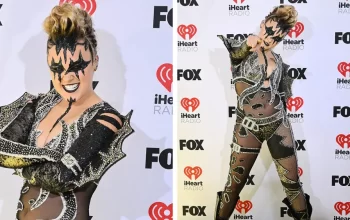John Bemis
Web Producer
@bemiscourant
Being a David Bowie fan is it’s own form of liberation. Beyond the very spirit of mass-separation in his music, from a set vocal range, instrumental lineup, or even recognizable style, it’s to be an audience to the single most diversiform artist in Rock music. It’s not about ‘which David Bowie album is your favorite?’, but ‘which David Bowie is your favorite?’. He was an artist obsessed, not with the trivial shift in sound, but with a complete re-masking. He knew his worth, and brought all of us fans along for the ride of attempting to anticipate the next unforeseen miracle.
Looking back on his career, now that the titan has fallen tragically, the only consistency in it is his quality of work as something far beyond just a musician. A deft stylist, he was attentive to the emotional and visual aesthetics of his personas; the solemn prescience of Major Tom, the gender-fluid vivacity of Ziggy Stardust, the secret nihilism of the Thin White Duke, the dramatic glam of David Bowie the Philadelphian soul singer, and countless others. All of these forms were of their own outlook and mysticism, which he used to his advantage even in interviews; he knew how to be stone cold, hilarious, and honest while giving just enough away to infiltrate your curiosity.
Though pinning his look or vibe was never an easy task, the music that he wrote to fill these costumes was is where his obvious brilliance will live on. David had a voice that could soar from a throaty bass to reptilian falsetto and in between, using it to adapt to each of his characters; ‘Moonage Daydream’ comes from some space invading seductress, while ‘Young Americans’ is from an earnest balladier, quivering with passion. Even to this day, on ‘Blackstar’, he was stretching his tenor exactly when it would surprise and capture.
As a songwriter, these settings offered him multiple venues to flex his genius. He had the taste to arrange the sweeping orchestrals of ‘Life on Mars?‘ and the loose, crazed energy to write a song in ‘Suffragette City‘. Obsessed with the theatre, and it’s conjuction with rock, his albums were a perfect blend of his thespian urges and real catharsis; a meticulously set stage on which he was free to act or let you see what was behind the makeup. By the close of the 70’s he was moving ahead of his audience, experimenting with Krautrock and minimalist electronics on Low, Lodger, and Heroes.
Knowing that I’m not alone in my mourning, I asked fellow Bowie fanatics in the NCHS faculty about their experiences with David. “He had individuality”, NCHS Orchestra Conductor Leo Ficks said . “He would expand whom he collaborated with, what his influences were; he evolved. That’s, to me, what an artist is.”
I agree wholeheartedly with Mr. Ficks. Bowie was to his generation of Rock n’ Roll what Kerouac was to his generation of writing, what Pollock was to his movement of visual arts. Even into his old age he pursued the fresh and contemporary, never resting on the lapels of his previous achievement. He had the wit, charm, and vision to turn the very axiom of Rock on it’s head; he made a rebellion against anything into a union of anything, where the entire world of modern music was his playground, student, and muse. There’s a gaping hole in our culture where our chancellor of Rock n’ Roll stood. The stars look very different today.



